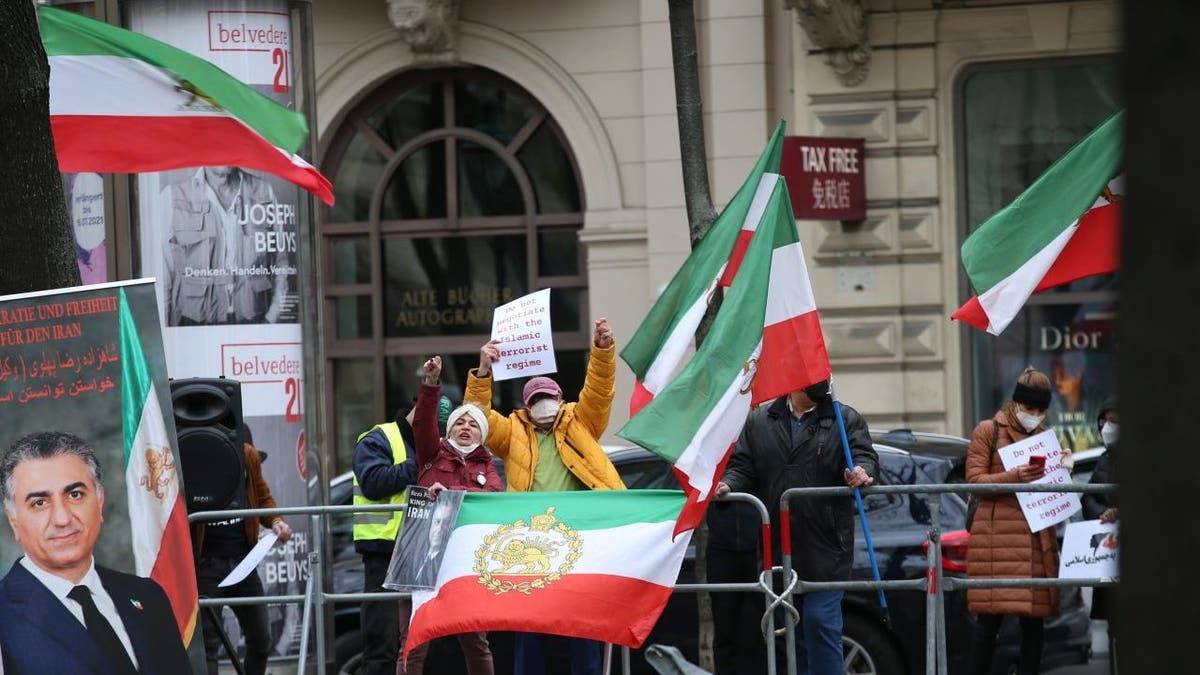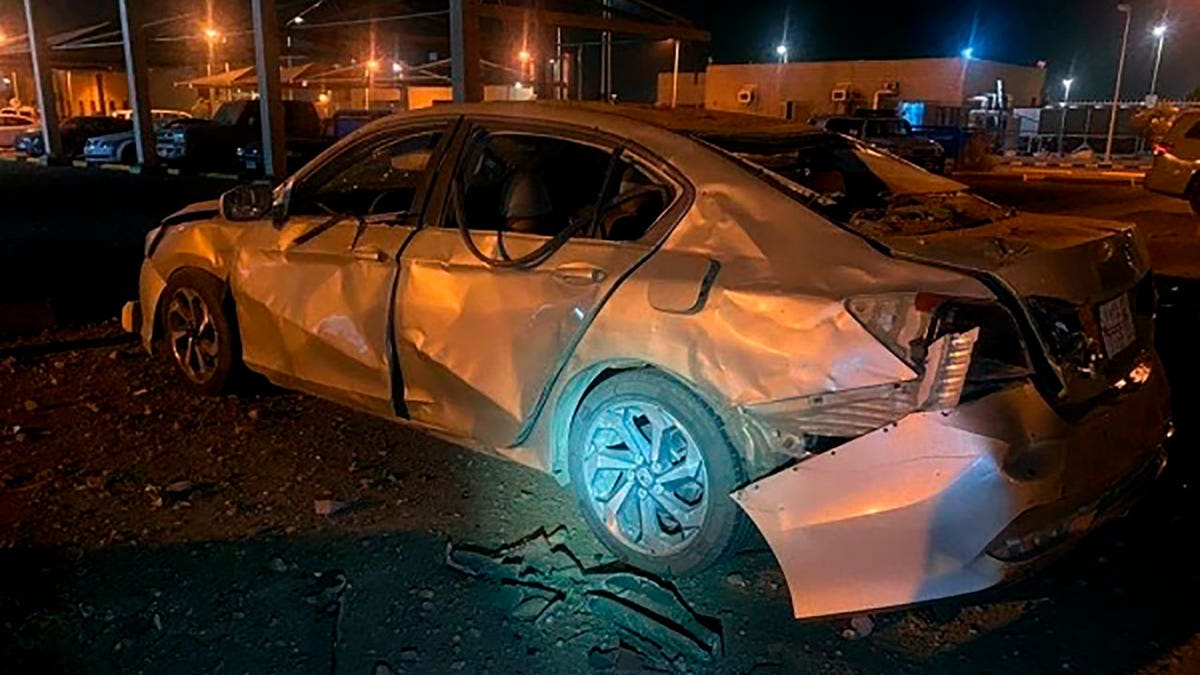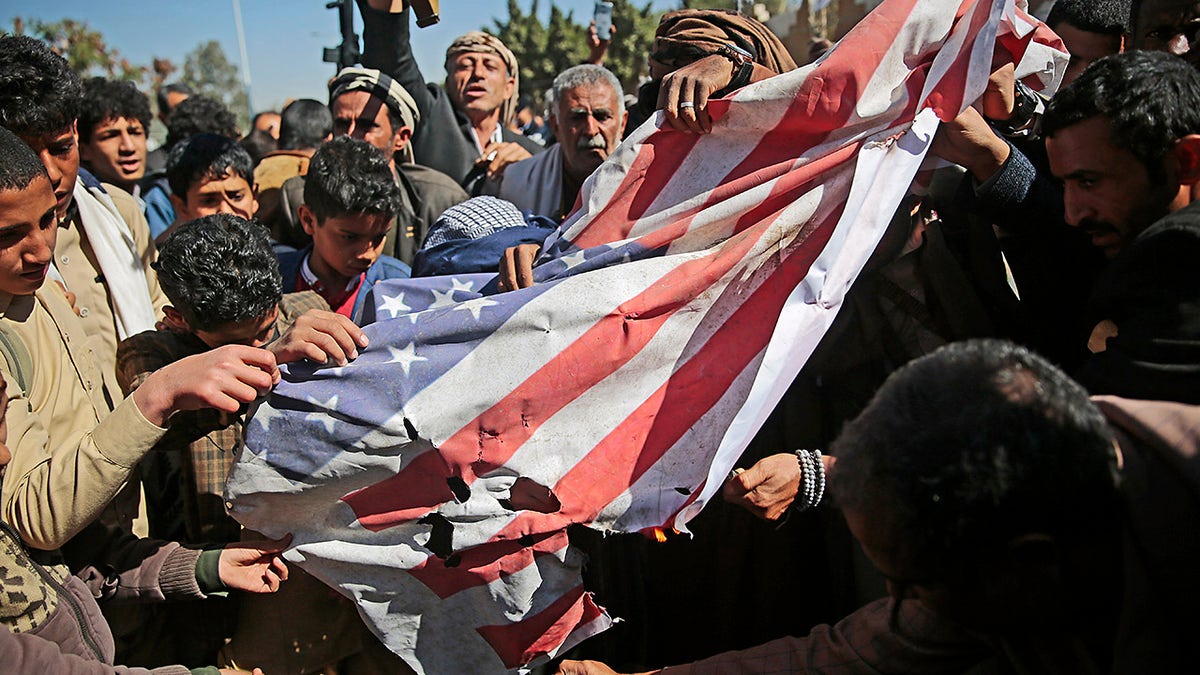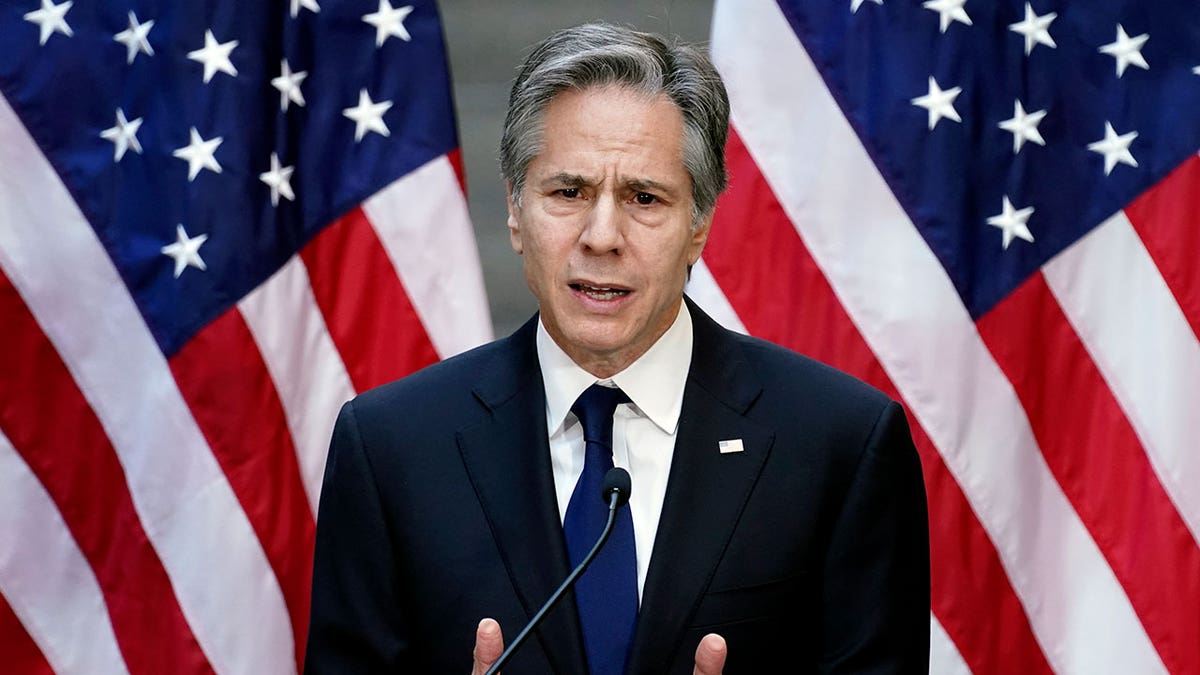Fox News Flash top headlines for March 25
Fox News Flash top headlines are here. Check out what's clicking on Foxnews.com.
Friday’s ballistic missile attack by the Houthis, an Iranian-backed terror group based in Yemen, against a major Saudi oil depot is furthering feelings of anger and frustration among several key regional allies toward the Biden administration.
The concern is that Iran’s proxies will escalate attacks in the region as the prospects of the administration rejoining the Iran nuclear deal look increasingly likely.
Against the backdrop of Russia’s invasion of Ukraine, analysts suggest there is a growing issue with how America is seen by some allies. It's a perception that American leadership in the world is weakening, argues Jonathan Schanzer, a former Treasury department official and senior vice president with the Foundation for the Defense of Democracies (FDD).
"First, the White House bungled Afghanistan, then Putin walks into Ukraine and now Washington has apparently caved to every demand issued by Iran, the world’s leading state sponsor of terrorism," Schanzer said.

In this photo provided by the Saudi Press Agency, firefighters try to extinguish a blaze at an Aramco terminal in the southern border town of Jizan, Saudi Arabia, March 20, 2022. Yemen’s Houthi rebels unleashed a barrage of drone and missile strikes on Saudi Arabia that targeted a liquefied natural gas plant, water desalination plant, oil facility and power station, Saudi state-run media reported. (Saudi Press Agency via AP)
"Our allies are all wondering if there is, in fact, an American-led world order. This undoubtedly opens the door for transactional alliances with the likes of Russia and China. In short, our allies are scared by America’s lack of leadership. They should be."
The Biden administration has been in talks in Vienna, Austria, with parties to the nuclear deal, and rejoining the controversial Iran nuclear deal, officially known as the Joint Comprehensive Plan of Action (JCPOA) appears imminent.
AGREEMENT TO RESTORE IRAN NUCLEAR DEAL EXPECTED WITHIN DAYS: EUROPEAN DIPLOMAT
In 2018, President Trump pulled the U.S. out of the 2015 Obama-era deal and imposed strict sanctions that seek to halt Iran’s nuclear activities.
Mohammed Khalid Alyahya, an expert on Saudi Arabia and the Gulf and visiting fellow at the Hudson Institute, spelled it out clearly. He said Gulf states viewed the Iran nuclear deal in 2015 as "the original sin" given all the problems they have since faced with Iran’s proxy militias.
Alyahya says a future deal will be much worse since it does not only do a poor job in addressing the nuclear aspect, but will also likely give even more sanctions relief to Tehran.

A group of anti-Iran demonstrators gather during the meeting of the Joint Comprehensive Plan of Action (JCPOA) in Vienna, Austria April 15, 2021. (Askin Kiyagan/Anadolu Agency via Getty Images)
"If you take it from the Gulf perspective, it is precisely this American policy that is fueling attacks on the Gulf's oil infrastructure," Alyahya said. "So, it's through that lens that one must understand the frustration of Gulf actors when it comes to taking phone calls or to discussing increasing output of oil."
The Biden administration’s recent request to the Saudis and the UAE for help reducing oil prices given the crippling costs of gas in the U.S., coupled with an imminent U.S. return to the nuclear deal, have further muddied trust with regional allies.
Alyahya said asking the Saudis to boost oil production is not a straightforward request and threatens a major Saudi foreign policy success. "The ask is to shred the OPEC+ agreement, and the OPEC+ agreement is one of the signature foreign policy achievements of Saudi Arabia and the Gulf states and rebuilding it would be very difficult."

A damaged car is parked at an Aramco terminal in the southern border town of Jizan, Saudi Arabia, March 20, 2022. Yemen's Houthi rebels unleashed a barrage of drone and missile strikes on Saudi Arabia that targeted a liquefied natural gas plant, water desalination plant, oil facility and power station, Saudi state-run media reported. (Saudi Press Agency via AP)
Saudi Arabia leads a group of 23 countries that make up a pact known as OPEC+. It has recently been in the news given that Russia is a member. According to reports last year, OPEC+ agreed to increase production to try and help reduce gas prices.
Alyahya told Fox News Digital it is time for the U.S. to be more realistic in its discourse with allies and lay out what it wants to achieve in the world and how allies can help.
He points to Friday’s attack against an oil depot in the Saudi city of Jeddah as just the latest in a number of attacks against the Saudis by the Iranian-backed militia from Yemen. Alyahya noted that the Houthis were delisted as a terrorist group by Washington last year.
"Bombs are raining down on Saudi oil facilities that are being launched by the people the Biden administration is boosting through its own foreign policy, via the Iran deal and delisting the Houthis," Alyahya said.

Houthi supporters burn a U.S. flag during a protest Jan. 18, 2021, in front of the U.S. embassy in Sanaa against the United States over its decision to designate the Houthi rebels movement as a foreign terrorist organization. (Hani Al-Ansi/picture alliance via Getty Images)
BIDEN ADMINISTRATION TO REMOVE TERRORIST DESIGNATION FOR YEMEN'S HOUTHI MILITIA
The Biden administration undid yet another Trump administration policy by delisting the Houthis last year from the Foreign Terrorist Organization (FTO) list and as a Specially Designated Global Terrorist (SDGT).
Alyahya said it would be foolish for the Saudis and Gulf countries not to follow their own national interests.
"So, I mean, calling for Saudi Arabia to boost oil prices and forgo their national interest and OPEC+ while they are being targeted by America’s enemies is an impossible ask," Alyahya said. "It doesn't mean they are anti-American. It doesn't mean they are anti-Biden, it doesn't mean they are playing partisan politics. It doesn't mean they are pro-Republican or anti-Democrat. It just means that they are not fools."
Observers say the Iran deal could mean billions of dollars flowing to the bank accounts of the regime in Tehran that will undoubtedly be used to fuel Iran’s hegemonic ambitions throughout the region and point to the fact that regional changes could be ahead given the building frustration.
"It's not that they're fearful, they're angry. I think that's an important distinction," said Theodore Karasik, a senior advisor to Gulf State Analytics, a Washington, D.C.-based geopolitical risk consulting firm. He says the result of this is an adjustment of those countries' strategic outlook in what he says is a "tectonic manner."

Secretary of State Antony Blinken speaks after viewing the "Burma's Path To Genocide" exhibit at the United States Holocaust Memorial Museum in Washington, March 21, 2022. (Kevin Lamarque, Pool via AP)
Karasik points to the meeting earlier this week hosted by Egyptian President Abdel Fattah el-Sissi, who was joined by Israeli Prime Minister Naftali Bennett and the Crown Prince of Abu Dhabi Sheikh Mohammed bin Zayed Al Nahyan, the de facto leader of the United Arab Emirates (UAE). Reports said the three leaders discussed the repercussions of the Russian invasion of Ukraine, regional issues and the Iran nuclear deal.
"The meeting is a direct response to the anger and absence of the United States in the region at this time. They are seeking to create a joint security mechanism that links their air defense and anti-drone technologies against Iran," Karasik told Fox News Digital.
Perhaps cognizant of the dissatisfaction reportedly felt by regional allies, Secretary of State Antony Blinken will travel to the Middle East next week. In Israel, he will jointly meet with the foreign ministers of Israel, the UAE, Morocco and Bahrain. According to the State Department, Blinken will also meet with the Sheikh Mohammad bin Zayed Al Nahyan to discuss regional security and international developments while in Morocco.
CLICK HERE TO GET THE FOX NEWS APP
Blinken might have his work cut out for him as he meets with concerned allies. The FDD’s Jonathan Schanzer predicted the trip will do little to change the administration's mind.
"Blinken is now coming to the region to ostensibly let America's Middle East allies air their grievances," Schanzer said. "It's unlikely this will change the Iran deal in any tangible way."
Fox News' Adam Shaw and the Associated Press contributed to this report.









































